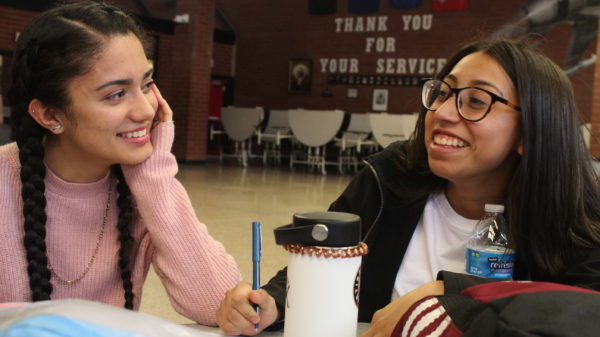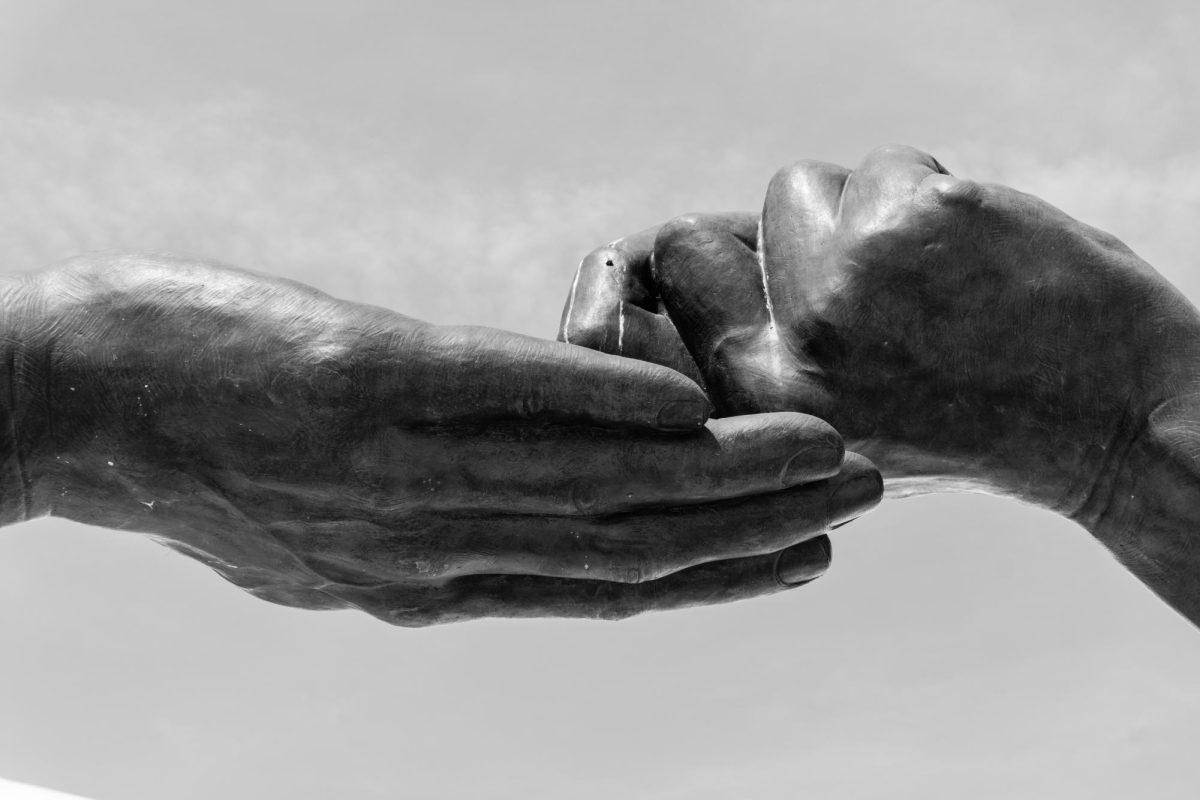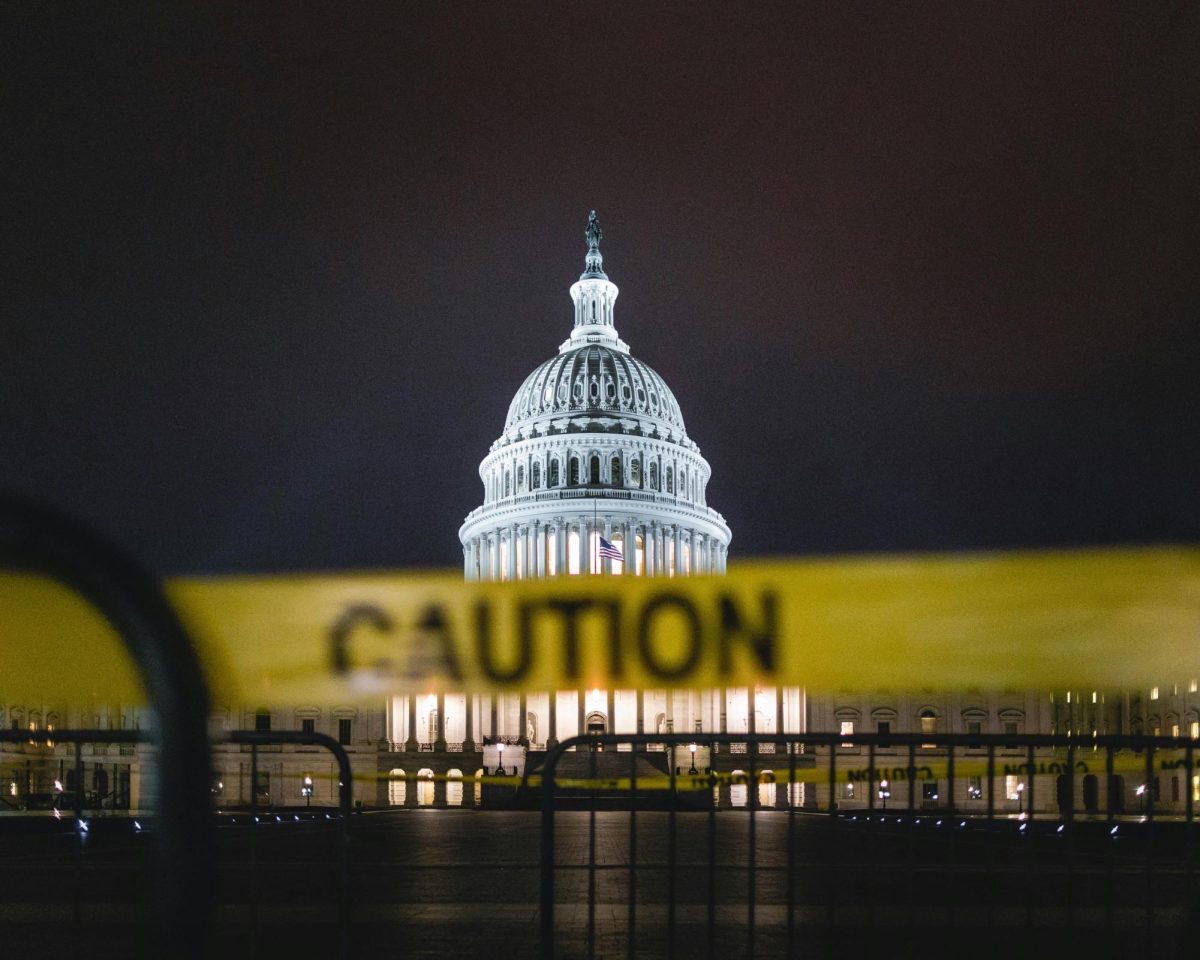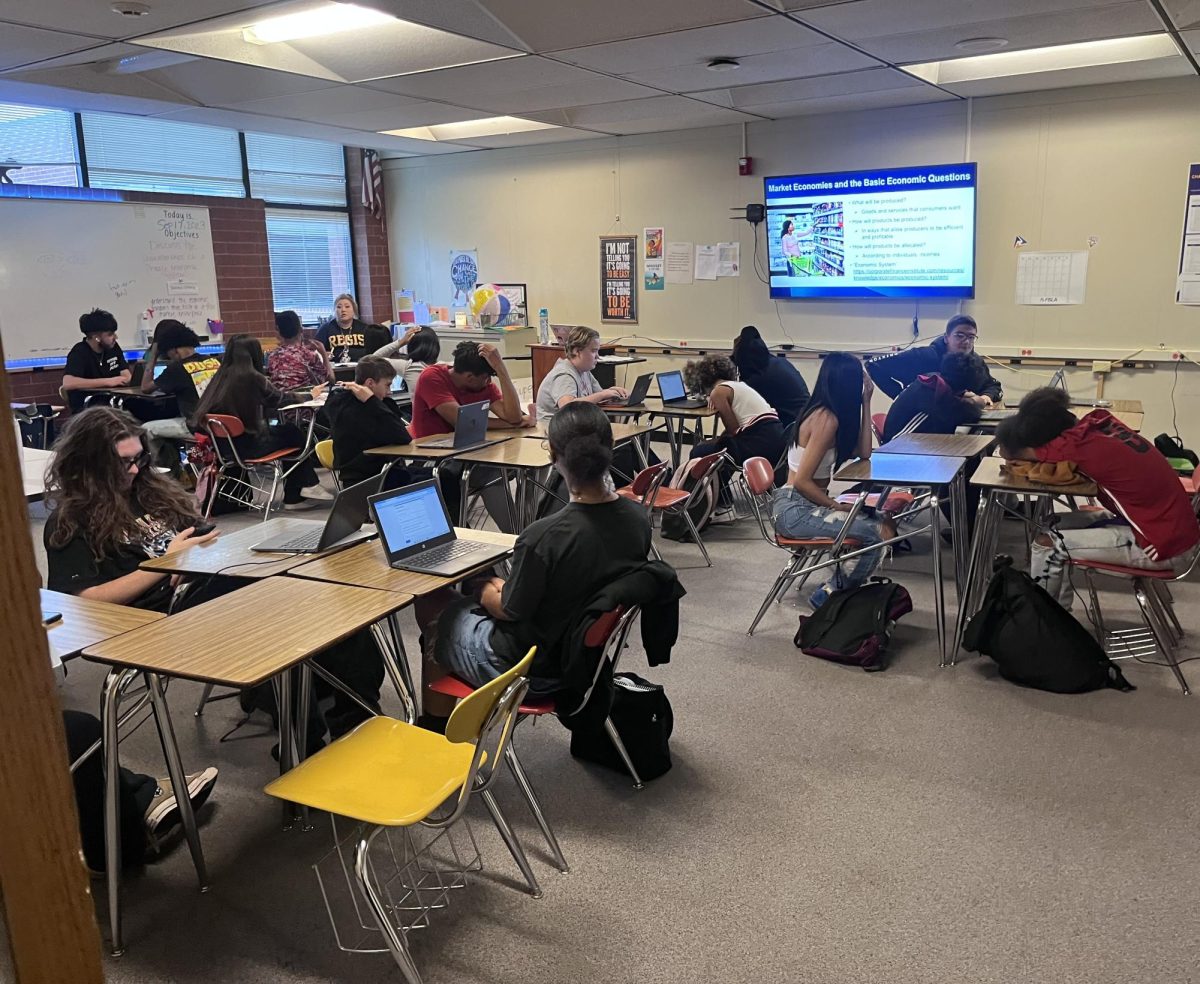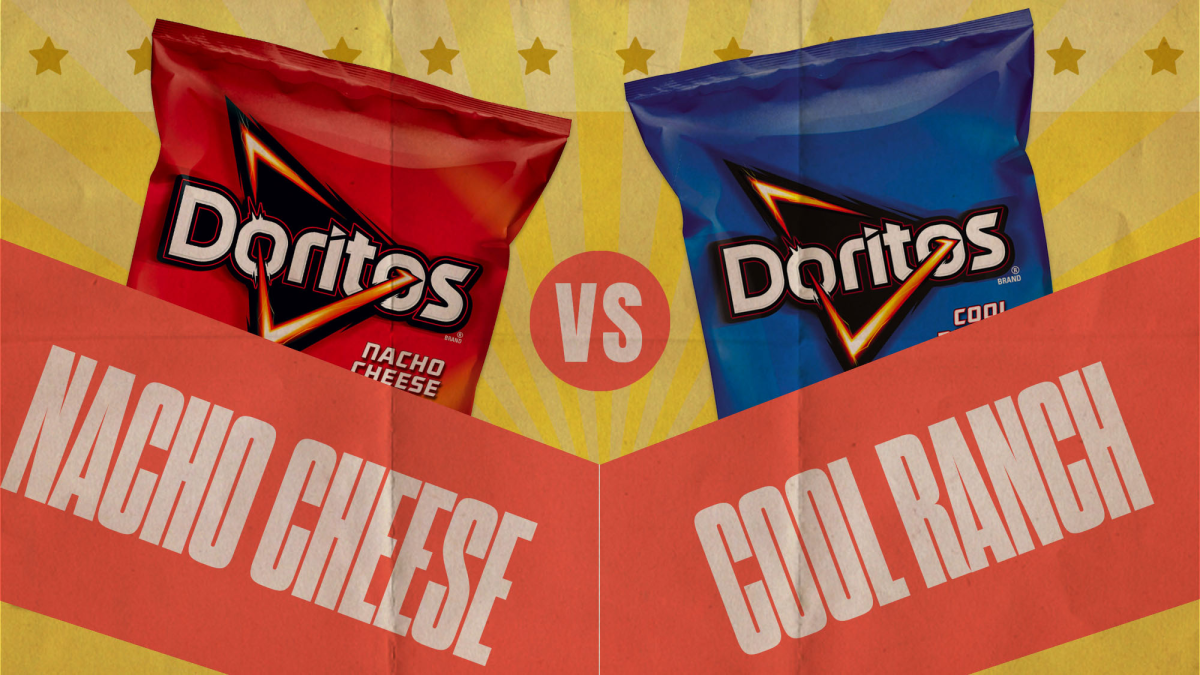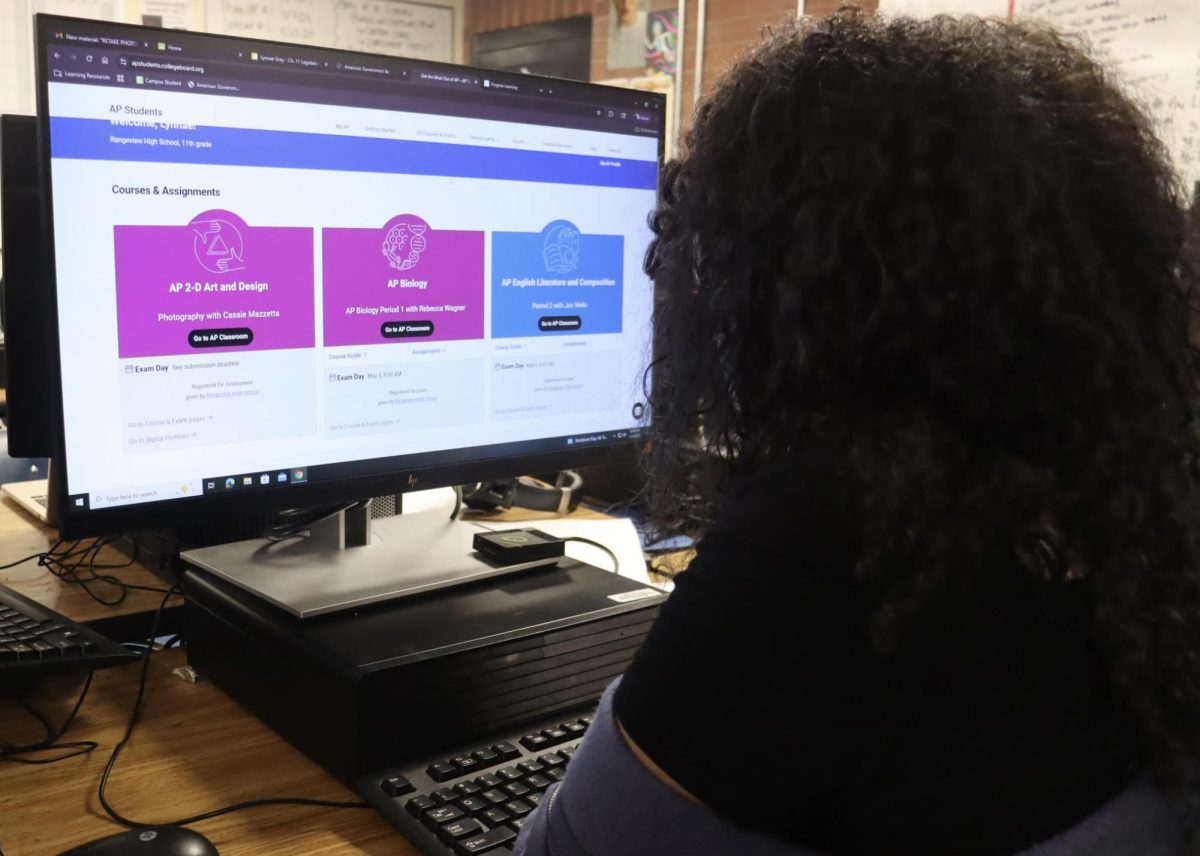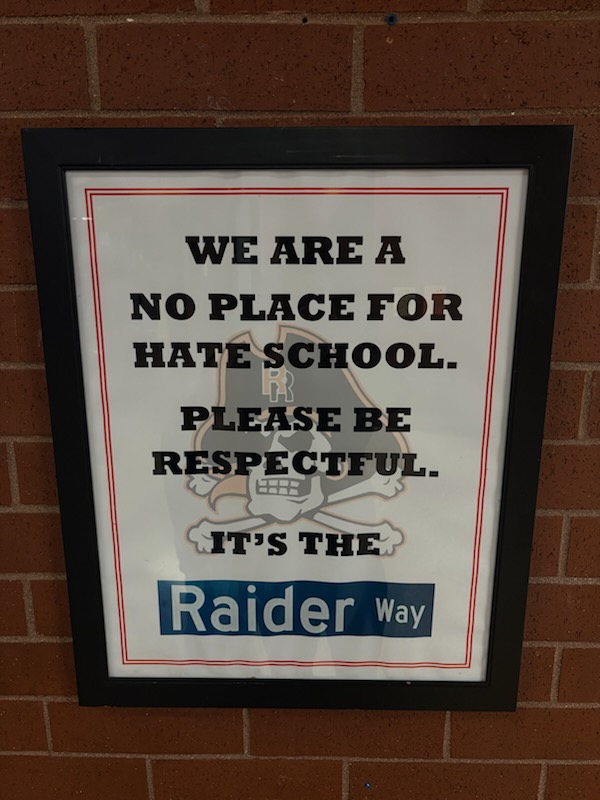Feature Photo By: Myriam Alcala – Juniors Melanie Aguirre and Beatrice Martinez sit during sixth period and discuss life at Rangeview. Aguirre commented, “Nobody ever sees you as more than the group you are in,” when asked about what it’s like to be a minority; both she and Beatrice are Latina students.
When I was in elementary school, I rode the bus. My first language is Spanish and up until 4th grade, I had an IEP for English. My bus driver in kindergarten and first grade would make me sit at the back of his bus because he didn’t like how I spoke, my accent was very prominent.
At the time I didn’t know why I was treated differently, now I know it’s because of my race: I’m a first generation Latina female — I’m a minority.
Whenever I bring it up, people get annoyed because I’m “pulling out the race card again,” but in all honesty, our “race card” is not a benefit, it’s simply all we have in this predominantly white society.
This is what it means to be a minority.
When race is talked about in public spaces, the conversation is usually run by white people. For example, in my sister’s job, they have equity meetings –people of color and white people meet separately once a week and come together after. This is meant to create a safe environment for minorities but instead, as my sister explains, it only makes the white dominance in the workplace more noticeable.
Whenever they vote on something, the white people always win because they make up the majority and whenever the meeting is inconvenient for them, it is accommodated.
This white dominance is bad, but what isn’t bad is white privilege –these two are often merged together. White privilege is simply referring to the fact that race is not something white people have to worry about, it’s not an obstacle.

Every white person has white privilege and it’s crucial to accept that in order to use it for good. “Ally” is the term for white people who 1) recognize their white privilege and 2) use their power to help minorities.
When that white privileged is ignored, stuff like the college scandal where white artists paid for their children to get into Universities happen; or even worse, people separate themselves from their race which hides the oppression of people of color.
Here at Rangeview there is one ally that I can always rely on, Laurel. She explained to me how she started to uncover her white privilege and uses it to help minorities like me speak up and have a voice.
However, she did explain how it takes time to come to terms with the truth because often times some white people become defensive. She is the person who introduced me to the concept of white fragility: the distancing of your “whiteness” because it is uncomfortable.
Even though the term “white fragility” is meant to only refer to white people, It’s normal for everyone to struggle in recognizing and uncovering the truth about their identity; it took me 17 years.
In middle school I became commonly known as a “model minority”, I succeeded because I followed social norms: my Spanish accent was gone and I never spoke about my Mexican background.
This was also true for my first two years of high school. At this point I became a master at acting “white”, I dyed my hair blonde and I barely spoke Spanish. I was never referred to as ghetto or chola like my older sister was; instead my people called me “whitewashed”. I didn’t care though cause my white friends accepted me.
It wasn’t until this year when I began to open my eyes to the world that surrounded me all my life. I saw how I was different and how people reacted to me.
People would tell me to go back to my country in sporting events, I would get stares of disgust in public when I wore my Mexico shirt, but worst of all was the reactions I received at school when I began to speak about race.
I called out the gap of representation I saw between the people in charge and the student body, surprisingly in this supposed “diverse” and “safe” space, I was marginalized and singled out –I was oppressed in a way I never was before.
I became nothing more than another minority complaining about the way things are, I was no longer considered the “basically white” friend every white person loved rather an enemy of the status quo.
“People are always underestimating your capability,” said junior and Latina student Melanie Aguirre. “Nobody ever sees you as more than the group you are in.”
This is what is means to be a minority: having to choose to speak up and face the consequences or stay quiet and live in fear.
The racism minorities face, like the type I described above, is incomparable. Yes, sexism and homophobia and other types of oppression are relevant in the U.S. too, but they are all different from each other. No matter how much I know about a type of oppression, if it is not my own, I will never fully understand it.

There is only an extent of empathy a non-person of color could have towards racial oppression. Being an ally to minorities does not mean you need to completely understand what I am going through, you simply understand your role in why things are the way they are and want to be a support in this fight.
One of the most damaging things a non-person of color can do is attempt to assert their knowledge of racism or oppression to a person of color.
One of my white friends came up to me one day and told me I wasn’t Latina because Mexico isn’t part of Latin America. Although I adore the fact that my friend is trying to learn more about my culture, the topic is sensitive, specifically this one since it is about my identity.
It wasn’t only the fact that this person was trying to tell me what I was that oppressed me, it is the fact that this non-person of color, telling me rather than asking, is implicitly stating they know more about my oppression and my history than me.
As you can see, it’s hard tackle the conversation of race when it is not first nature; but this perspective is important to understand. Often times mainstream media shows “whitewashed” versions of oppression which can excuse oppressive behavior in our society.
A very small but understandable example was seen with the traditional Mexican bread “concha”. The Food and Wine company posted a photo of the bread and called it a “sweet brioche-like roll”. Many were angered because it would have taken less than a minute to search for the name of the bread and the company had no reason to use these terms to describe it other than to simplify it for the white community.
This traditional piece of bread is what many Latinos, including myself, consider one of the only things from back home; it was disappointing to see the “concha” stripped of its cultural identity.
Similarly, other stories –on a grander scale –are Europeanized to benefit the white community while essentially “taking” the story away from its people –take British colonization as another example.
“In becoming ‘objective’ society has made objects of people,” wrote Gloria Anzaldua.
Because of this, it is so hard to feel heard as a minority, society already painted a distorted picture of what my oppression looks like in people’s minds.

“Being a minority is being unable to communicate my needs,” said black student, Pearl Bilson.
This form of oppression still exists because people of color are not being heard; instead some white people in power believe they can solve the issue alone. Seeing this paradox play out is all minorities think we can do, we watch in the stands as band-aids are put on hundred-year-old wounds.
By simply waiting for change, my life will be spent working harder than the average white person for much less pay; talking through a piece of tape but never being heard; waiting for change that is never going to come if the white man stays deep asleep in his ignorance.
However, I’m tired of waiting, I want progress.
White People: If you want to see change, start within yourself. White Privilege is not bad if you use it for good; be an ally to the people of color and pass the microphone to minorities so we can express our needs and contribute to the conversation. Let us be in charge of the “race conversation” because this is our oppression we’re talking about.
People of Color: Fight for a voice if it is not provided. I know i’m not the only one who is tired of waiting. Be unapologetic with your approach to racial conversations and take your power back. Speak up.
This is what it means to be a minority: to fight for power, not wait for it.
